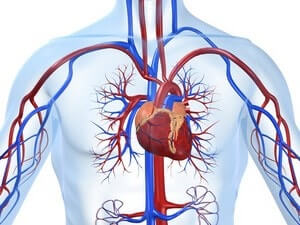 The cardiovascular system works as a transport - a carrier of oxygen, nutrients from the gastrointestinal tract to organs, tissues, cells of all body systems (arterial bed) and removes carbon dioxide, toxins, waste products of cells into the blood, lymph (venous bed). The system has a motor for pumping blood - the heart, whose work depends on the nervous and respiratory systems.
The cardiovascular system works as a transport - a carrier of oxygen, nutrients from the gastrointestinal tract to organs, tissues, cells of all body systems (arterial bed) and removes carbon dioxide, toxins, waste products of cells into the blood, lymph (venous bed). The system has a motor for pumping blood - the heart, whose work depends on the nervous and respiratory systems.
Each vessel of the system has membranes consisting of connective, muscle and epithelial tissue. For the normal functioning of this system, it is necessary to maintain the constancy of the internal environment of the blood: its pH is balance, fluidity, the presence of all cellular elements in the correct ratio (erythrocytes, leukocytes, platelets, etc.).
If the pH balance of the blood changes to acidic due to malnutrition, then the musculoskeletal system will suffer first, giving calcium and other minerals to alkalize the blood.
 The cardiovascular system works as a transport - a carrier of oxygen, nutrients from the gastrointestinal tract to organs, tissues, cells of all body systems (arterial bed) and removes carbon dioxide, toxins, waste products of cells into the blood, lymph (venous bed). The system has a motor for pumping blood - the heart, whose work depends on the nervous and respiratory systems.
The cardiovascular system works as a transport - a carrier of oxygen, nutrients from the gastrointestinal tract to organs, tissues, cells of all body systems (arterial bed) and removes carbon dioxide, toxins, waste products of cells into the blood, lymph (venous bed). The system has a motor for pumping blood - the heart, whose work depends on the nervous and respiratory systems.